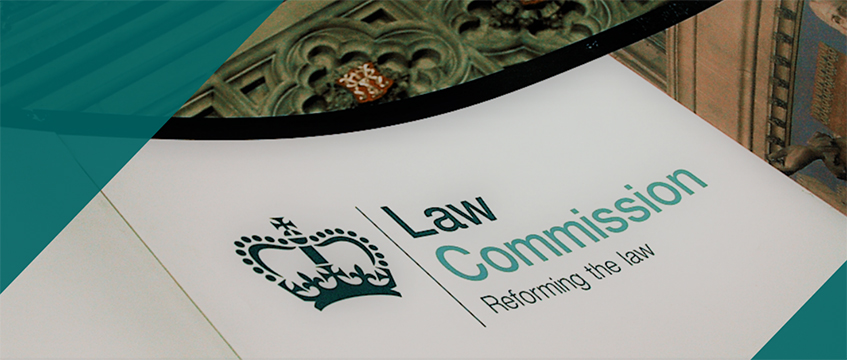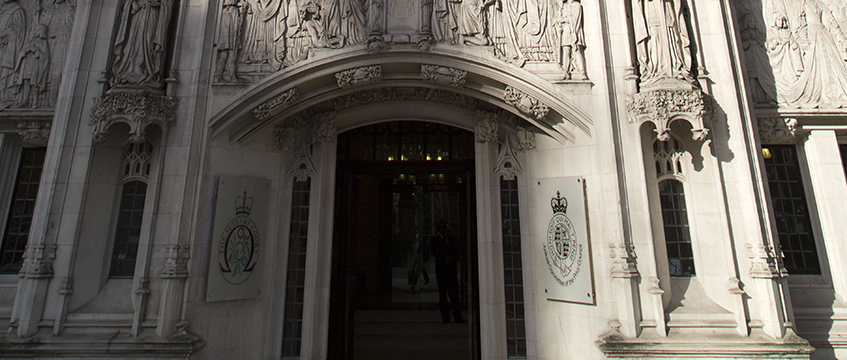Road traffic – Traffic regulation order – Consultation process – Claimants challenging traffic regulation order made by defendants – Whether defendants failing to consult – Whether defendants failing to take into account technical or other evidence for making order – Whether defendants failing to consider suitability of alternative routes – Application dismissed
The claimant, which was the traffic authority for the county of Surrey, challenged a traffic regulation order made by the defendant, a neighbouring authority. The order affected a 200m stretch of the B383 road where it narrowed and ran over a bridge. The defendants had previously placed a weight limit on the affected section, prohibiting its use by vehicles in excess of 18t. The claimants had objected to the making of the order, including the effect it would have in diverting commercial vehicles in excess of 18t onto local roads in the claimants’ area, which were said to be less suitable environmentally and otherwise.
The claimants had granted planning permission for a substantial mixed-use development on a site close to the B383, which was one of the two proposed construction routes to serve that development. The new order further reduced the weight limit on the road to 7.5t because of the fear of collisions between HGVs on the bridge. The claimant argued that the order was likely to displace HGVs onto a road which had a significantly poorer accident record than the B383.
The claimants contended that the defendants had failed to: (i) comply with their obligations to consult with the claimant pursuant to regulation 6 of the Local Authorities’ Traffic Orders (Procedure) (England and Wales) Regulations 1996 separately from giving notice of the proposed order under regulation 7; (ii) take into account any technical or other sufficient evidence for making the order; and (iii) consider the suitability of alternative routes and/or the traffic and amenity impacts on those routes as a result of the proposed order.
The essential requirements of a consultation process were that the consultation had to be at a time when proposals were still at a formative stage; the proposer had to give sufficient reasons for any proposal to permit of intelligent consideration and response; adequate time had to be given for consideration and response; and the product of consultation had to be conscientiously taken into account in finalising any statutory proposals (the Sedley criteria): see R (on the application of Moseley) v Haringey London Borough Council [2014] 1 WLR 3947.
Held: The application was dismissed.
(1) The central question was whether the claimants could establish that the defendants failed to consult them prior to making the order for the purposes of regulation 6. Under the 1996 Regulations the obligation to consult had to be met by the time of the making of the order. The Sedley criteria were an appropriate starting point. However, it was for the order-making authority to determine how and at what stage the required consultation should be carried out, subject to it being completed before the order was made.
The consultation requirement under regulation 6 was a separate requirement from the regulatory framework for objections provided under regulations 7, 8 and 13. The defendants had not distinguished between consultation under regulation 6 and notice for the purposes of objection under regulation 7. Accordingly, their e-mail to the claimants enclosing the statutory notice and other documents, and describing it as being “by way of formal notice”, would have reasonably been understood as referring to the whole process under regulations 6 and 7, thus both consulting the claimant and providing the notice required by regulation 7(2).
The consultation was not disqualified as being beyond a formative stage because the defendants chose to carry it out in the light of its proposed order and at the same time as the objection process under regulations 7 and 8. There was nothing on the materials before the court to demonstrate that the consultation was not a genuine process, or that the officers and councillors did not retain an open mind as to the consideration of any responses. The claimants had not been hampered by any lack of information about the proposal and, following its objection, a meeting arranged between the parties enabled the concerns to be discussed. That meeting was properly part of the consultation process and the defendants’ final decision took full account of the claimants’ objections. In all the circumstances, the claimants had not demonstrated that the defendants failed to consult in accordance with regulation 6.
(2) The defendants had ample evidence on which to base their conclusions supporting the safety objectives of the order. The extent and character of evidence required for their decision was a matter for the defendants to determine against the local considerations which were involved. There was nothing to show that their conclusion to support the order on that evidence was irrational or flawed.
(3) The question of diverted HGV traffic was expressly considered in the report to the defendants’ cabinet and by the cabinet as part of its decision. It was not said that the claimants had been unable to introduce traffic management measures on the alternative route, if that was appropriate. The criticism was that it was unlawful for the defendants to have made the order without making further inquiries as to its effects and how they could be addressed. There was nothing to demonstrate that the defendants’ decision not to require those further inquiries or evidence was irrational or otherwise unfair or unlawful.
Ruth Stockley (instructed by Surrey County Council Legal Department) appeared for the claimants; Robin Green (instructed by Windsor and Maidenhead Royal London Borough Council Legal Department) appeared for the defendants.
Eileen O’Grady, barrister










